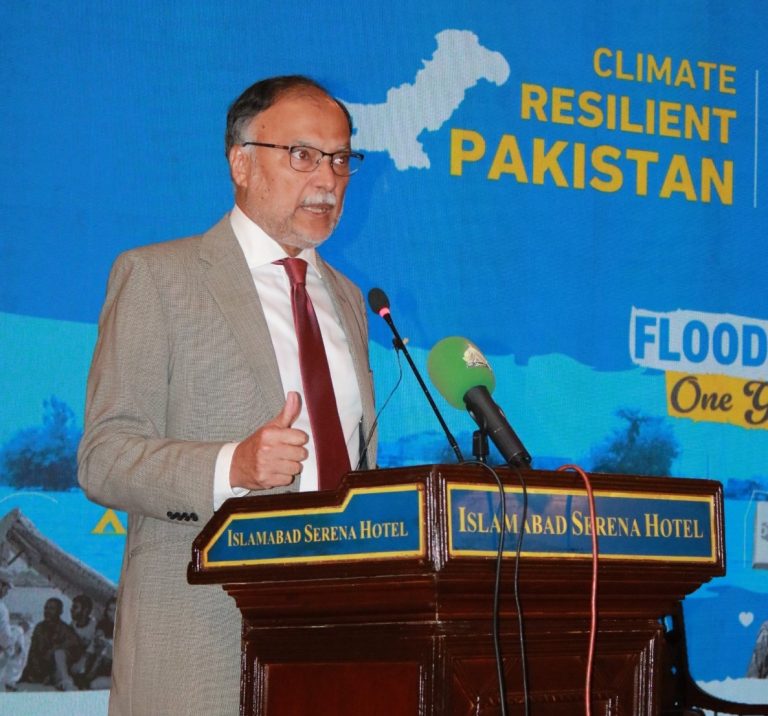By Asghar Ali Mubarak
ISLAMABAD: Minister for Planning, Development and Special Initiatives Professor Ahsan Iqbal on Thursday urged the international development partners to prioritize support for climate disaster-hit countries like Pakistan which suffered over $30 billion economic and physical loses due to heavy rains and floods last year.
Addressing the Islamic Relief National Conference on “Floods-2022 One-Year-On Resilient Pakistan: Rhetoric to Reality,” he highlighted the challenges faced by the nation and the need for urgent action to build a resilient Pakistan. He said the tragedy that hit Pakistan due to the climate disaster last year had resulted in damages worth over $30 billion and immense losses. Ahsan Iqbal emphasized that the double tragedy was compounded by its devastating impact on the poorest parts of the country, pushing them further into hyper poverty. “Vulnerable populations, including children facing nutrition crises, now face the threat of hyper-malnourishment.”
The floods not only wiped away the progress made under Sustainable Development Goals (SDGs) over the last decade but also highlighted the urgent need for a new beginning on the path of sustainable development, said the minister while emphasizing a stable socioeconomic platform for sustainable growth which is vital for Pakistan’s future.
He recounted the efforts made in the past to address similar floods, including the development of a national flood protection programme. However, the minister said, a lack of continuity and political changes hindered its implementation.
In light of the recent disaster, he pledged to re-engage with development partners and revive the national flood protection programme, allocating significant funds for its implementation this year.
Furthermore, he highlighted that the challenges posed by climate change go beyond just floods, adding “Pakistan faces various other climate-related threats, such as extreme temperatures, droughts and flash floods in northern areas.
To tackle these challenges effectively, the nation must prepare communities, society and institutions.” While appreciating the support of international agencies and UN agencies in the post-flood recovery and rehabilitation efforts, the minister stressed the need for more assistance to develop resilience against future climate disasters.
Ahsan Iqbal called upon the international community to be more considerate and generous in supporting vulnerable countries like Pakistan.
The minister unveiled a comprehensive 5Es Framework for the future of Pakistan, focusing on exports, digital transformation, environmental challenges (particularly water and food security), energy transition and empowerment (with an emphasis on women and youth).
He stressed the importance of continuity and stability in implementing these strategies for sustainable development.
He expressed concern over the growing population and stressed the need for proactive population management programmes.
“Empowering women and enhancing female workforce participation are vital steps in fostering a more equitable and prosperous Pakistan,” Ahsan Iqbal remarked.




